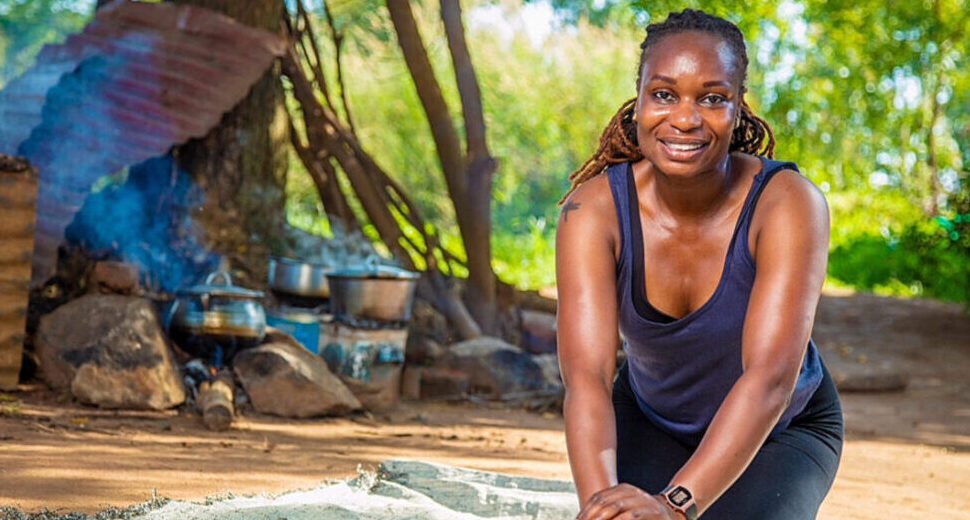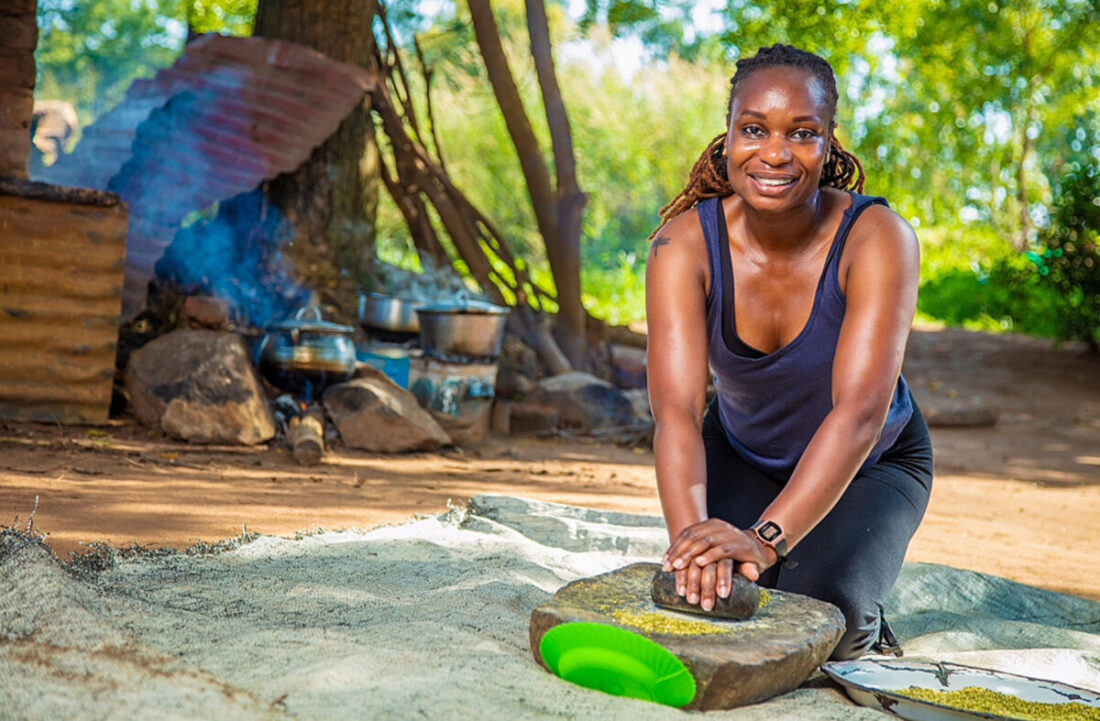
WHY IT IS #morethanjustafishhead FOR ME.

One of my favorite childhood memories was our walks after an afternoon nap—over the weekend or during the holidays. The goal was always the same; find fruit trees and feast. We never waited for fruits to be bought at home, we found them. Our neighbors and friends would call us over when their trees were ripe with fruit. Unknowingly, even as children growing up in an African country, we ensured we had the recommended fruit intake to stay healthy. That is how I know one does not have to be rich to eat healthy.
Whenever I sit at the top of a short flight of stairs, I am taken back 30 years. I remember a young skinny girl with long hair, watching and waiting patiently as her mother eats the flesh off a fish’s head. Then the mother would lovingly pass on—first the fish eyes—to the young girl, which she would pop into her mouth. Then the gills, and finally the fish head bone, from which the little girl would suck the delicious juices and chew on, while the gills would make her more intelligent.
That little girl was me. While my mother was spot on as far as the intelligent part was concerned if she were still alive, I would have told her she got the eyesight part wrong; I can barely see without my glasses! On the rare evenings when she was home (she worked for Uganda Airlines), she always asked for a fish stew to be cooked. Then I knew I was in for a treat. Just before the stew was ready, she would settle down on the top stairs that led to the terrace. This was at the front of our small townhouse in Entebbe.
She would watch passersby and sometimes call out greetings before asking to be served the fish head. That was my cue! I would rush from wherever I had been playing, wash my hands, sit down, and wait patiently. Sometimes in silence, other times telling on my siblings. I would watch as she ate all the flesh on the fish’s head and then get the cherry on top, my favorite parts—the eyes, gills and head-bone. It was more than just eating fish.
The meal was always fresh. Entebbe is surrounded by Lake Victoria so fresh fish is always in abundance. Sometimes it was delivered still flapping by the local fishmonger. I never understood why my mother always ate fish heads for dinner, and I reckon I never will. All I know is that these moments have made me love food a little more. They have also influenced how I look at and respect fresh produce and healthy food.
It is from these very stairs that I remember how we looked forward to fruit seasons. From here, we monitored the progress of the ripening of the jackfruits that grew in the compound at the back of the Uganda Electricity Board (UEB) office building. I do not think I have, nor will I ever taste jack fruit that sweet. Entebbe at the time was a place where everyone knew everyone. When the fruits were ripe, the guards would pick them, slice them up, and share them with those close by.
Growing up, our fruit intake was supplied with homegrown fruits. Each season had different fruits that were shared among neighbors. All one had to do was ask and choose as many as they wanted. We were advised not to waste fruit and “pick what you can eat and come back tomorrow for more.” During mango season, we looked at our neighbors who had two giant mango trees in their backyard. Other times we walked to the home of a grand aunt who lived about ten minutes away, picked, and ate as many as we wanted.
The physalis season was the most challenging. The only place they thrived was on a plot of land occupied by the town scarecrow known as Matovu. We had to climb over the back wall of our house, sneak onto the unkempt land, and “steal” it. After that season, came the jambula (java plum or Indian blackberry) season. The biggest tree was down on Hill Road.
When the fruit trees in the compounds were bare, there were botanical gardens. This was one of the most exotic places in Entebbe and a fruit heaven in my eyes. Never mind we sometimes had to fend off mean small monkeys who thought the fruit belonged to them. Or the mean guard who believed fruits were only for garden beautification, not eating.
And then there were my mother’s huge, purple sugarcanes by the house. Mother had “green hands” and her sugar canes proved this. She also kept a vegetable and banana plantation garden. The fact that we lived smack right in the middle of Entebbe town never hindered her from keeping a garden. We were neither rich nor poor. But we never lacked healthy meals. That is why I am baffled by those who say Africans cannot have food and nutrition security because of poverty!
I grew up on three healthy meals a day, and a snack, in 1980s Africa. On any given day, my plate was colorful and filled with nutritious food. There was always a portion of carbohydrates, proteins and greens. They ranged from matooke, cassava, potatoes, yams or posho, with sauces such as fish, beef, chicken, beans or groundnut paste. The chicken was mainly a Sunday or Christmas thing back then.
We always had vegetables during our meals or green leafy vegetables. My love for nakati, the bitter tomato or Ethiopian eggplant, and katunkuma, bitter berries, is still strong. The easiest vegetable to get was dodo (amarantha) which grew everywhere and in every household’s backyard. Once a week, our immune system was boosted by boiled mukene (silverfish) stew. I preferred this to the cod liver oil my mother always brought back from England.
So, when I hear someone say we cannot have food and nutrition security, I look back at all this and realize there is a mindset problem. It is a shame that with all the trimmings of modernization and development today, we still believe Africa cannot be food and nutrition-secure. And that Africans cannot have healthy meals because they are poor.
My fish head story is one I have told my 13-year-old son countless times. It is now 32 years since my mother died, but I continue to convey the importance of healthy eating to him. He never saw his grandmother, but her legacy lives on through the fish-head story. Perhaps if all Africans treasured their memories of their “fish head” stories, we would realize that eating healthy and food security is possible in Africa.

Leave a Reply